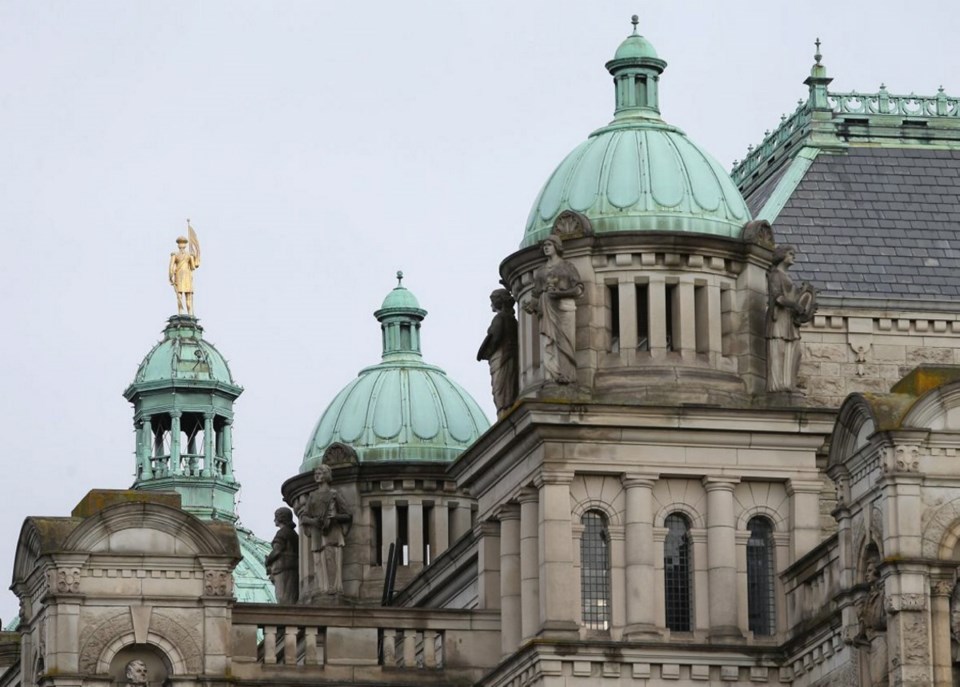B.C.’s politicians will return to Victoria next month for a six-week sitting of the legislature.
The session, which follows the Union of B.C. Municipalities convention in Vancouver, is slated to get underway Sept. 28.
The government rarely tips its hand as to the types of the legislation expected, but with wildfires raging across the province, Forests Minister Steve Thomson has signalled the possibility of a swift crackdown on people responsible for starting fires.
Thomson tapped Prince George-Mackenzie MLA Mike Morris last month to head a review of the problem and consider tougher penalties, including higher fines or impounding the vehicles of people caught tossing lit cigarettes out their windows.
Morris, a former RCMP superintendent, was given no deadline, but indicated he wanted to move quickly.
The issue of drone aircraft interfering with firefighting efforts has also surfaced over the summer, raising the possibility of a government response on that front, as well.
In addition, Justice Minister Suzanne Anton recently concluded a public discussion on tougher penalties for distracted drivers.
The more than 10,000 submissions and comments included calls for stiffer fines and escalating penalties for people repeatedly caught texting or talking on cellphones while driving.
RoadSafety B.C. expects to complete its analysis of the submissions, as well as of the approaches used in other jurisdictions, by this fall. The government anticipates announcing new measures by spring 2016, but could move sooner.
Government house leader Mike de Jong was unavailable for comment Friday, but Ben Chin, the premier’s executive director of communications and issues management, said the fall session will expand on the Liberals’ broad themes of modernizing government, eliminating red tape for citizens, and expanding skills training.
Beyond that, Opposition house leader Mike Farnworth said the government has offered few hints about its agenda.
“I’m quite sure there’s a lot of what you would call housekeeping legislation sitting in the depths of ministries of government that has been kind of sitting there, waiting to reach the top of the pile,” he said.
“The government’s in charge of what they want to bring forward. Our job is to scrutinize, which we will do, and question period, for which we will have lots of questions on lots of topics.”
Farnworth noted, however, that the federal election likely will overshadow the early weeks of the session.
“One doesn’t want to be cynical, but if the government has bad news, that’s probably the time they’d want to dump it, when attention is focused elsewhere,” he said.



